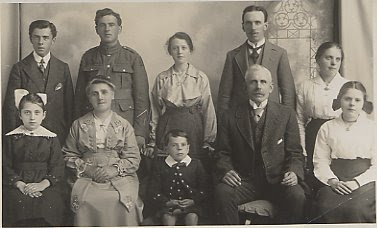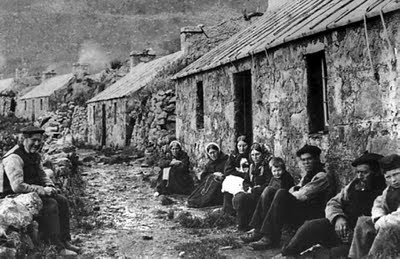No.7
Some people,
no matter how old they get,
never lose their beauty -
they merely move it from their faces
into their hearts.
- MARTIN BUXBAUM
-o0o-
-o0o-
I remember the summer evening in 1940 when a company of Free French Alpine Chasseurs arrived in our town. They, along with others of the Allied forces, had been forced by the Germans to evacuate Norway, and we saw them looking absolutely exhausted as they entered the town.
Many of them were billeted in a church hall near where we lived, and, once they were settled in, a number of the local families invited them for tea. We got to know one soldier quite well. Before the war Marius Reviglio had been a lift attendant in Nice and so his English was fairly good.
We were surprised to see how easy going the French soldiers were in comparison with the other nationalities. I don’t think it occurred to us that, after their Norway experience, they were entitled to some relaxation.
On one occasion when Marius came for tea, he told us that he had to meet an officer later that afternoon. When it was time for him to go, he was still drinking tea, and we pointed out that he was going to be late. You can imagine our surprise when he replied “Ze officer, he will wait.”
-o0o-
Some time later I decided to find out about cinema organ lessons. It surprises me now to think that I was brave enough to go in to the Odeon in Glasgow and ask to see the organist, Lyndon Laird. He came to the vestibule and explained that, although the war was over, there were restrictions on the use of electricity, and so the times when the organ could be used were limited. However he took me to a seat in the back stalls, gave me a cigarette and left me to enjoy a free show. I visited him once or twice, and each time we sat at the back of the cinema, discussing music in whispers.
There was just the one occasion when I had a “go” on a cinema organ. I had contacted Frank Olsen (about lessons) who played the Gaumont cinemas in Glasgow and he arranged to meet me in the New Savoy one Saturday morning.
The instrument, a 2 manual Christie, which probably dated from early in the century, had been in the Tivoli, Glasgow before coming to the New Savoy in 1935. I was surprised to find the keys yellow and worn with age, and disappointed to see that the console was fixed and didn’t come up from the depths!
The New Savoy console
What did I play? I can remember two of the pieces. The Giant Fugue by Bach (nicknamed Giant not because of its difficulty but because the pedal part was said to resemble the wide strides of a giant) and a popular tune “Memories of You.”
In 1958 the New Savoy closed down and, as usually happened to unwanted organs, the instrument was broken up. I’ve no doubt parts went to augment church organs all over the country.
A few weeks later I got my calling up papers for National Service, and I didn’t pursue the idea any further.
However, more than 40 years later, after I retired from office work, I was given the opportunity to play the kind of music cinema organists used to play. I found that a number of the local care homes for older folk had electronic organs, and I volunteered to visit them every week and entertain the residents. I played Sousa marches, Strauss waltzes, light classical pieces, songs from the shows and always finishing with a sing-along medley. I was in my element!!!
-o0o-
While Europe's eye is fixed on mighty things
The fate of Empires and the fall of Kings,
While quacks of State must each produce his plan,
And even children lisp the Rights of Man;
Amid this mighty fuss let me mention
The Rights of Woman merit some attention.
- Robert Burns 1759-96
-o0o-
Fiona, Lesley and Margaret at Lower Largo, probably in 1964
-o0o-
A Reminder
90PLUS AND STILL BLOGGING
is now being updated
EVERY WEEK END
-o=0=o-
While Europe's eye is fixed on mighty things
The fate of Empires and the fall of Kings,
While quacks of State must each produce his plan,
And even children lisp the Rights of Man;
Amid this mighty fuss let me mention
The Rights of Woman merit some attention.
- Robert Burns 1759-96
-o0o-
In the 1930s Sir Alan Cobham the aviation pioneer was well known for his solo flights all over the world.
He had been a test pilot for the de Havilland aircraft company, but I remember the years when he toured the country with his “Flying Circus.” With a dozen or so planes, pilots and ground crew, he came to Kirkintilloch on at least two occasions, setting up a temporary airfield just outside the town.
Of course this was a tremendous thrill, not just for me but for everyone, for in those days planes flying over our town were few and far between, and there was the added excitement of seeing them on the ground.
The highlight of the afternoon was provided by stunts which included the falling leaf, looping the loop, swooping down to pick up a piece of cloth from the ground and wing-walking.
Probably there were short flights for the public, but I can't remember. My father and I were to have that experience a few years later, when planes were doing pleasure flights from the sands at Prestwick.
-o0o-
-o0o-
A Reminder
90PLUS AND STILL BLOGGING
is now being updated
EVERY WEEK END
-o=0=o-















